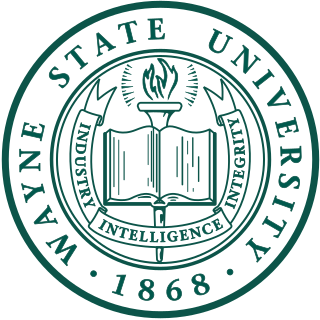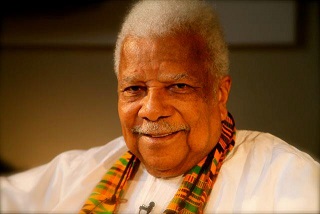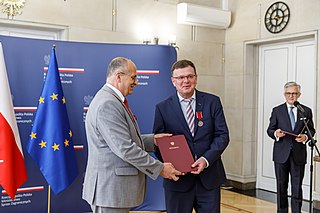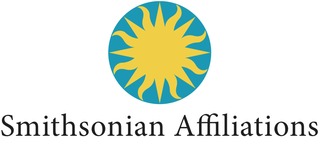| Established | 1948 |
|---|---|
| President | Raymond Glembocki |
| Address | 817 Berkshire Rd, Grosse Pointe Park, MI 48230 |
| Location | |
| Website | www.polishcultureacpc.org |
The American Council for Polish Culture (ACPC) is a national non-profit, charitable, cultural and educational organization that serves as a network and body of national leadership among affiliated Polish-American cultural organizations throughout the United States.
Founded in 1948 in Detroit as the American Council of Polish Cultural Clubs, [1] [2] by early 2000s the Council currently represented the interests of some 35 to 40 affiliated organizations located in the United States. [3] Its oldest affiliated organization, the Polish Arts Club of Chicago, was established in 1928.
ACPC is currently headquartered in Grosse Pointe Park, Michigan. [4]
In 1989 the ACPC established the American Center of Polish Culture which opened its doors in 1991 in Washington, D.C. The American Center of Polish Culture has, primarily, an educational function providing programs and exhibitions, but it also acts as a central point for the lobbying activities of the ACPC. The first director, taking office in 1991, was Dr. Kaya Mirecka-Ploss, who was then president of the ACPC. [5]
Currently ACPC offers the following scholarship opportunities:
- The Eye of the Eagle: Wladyslaw Zachariasiewicz Memorial Scholarship for American students of Polish descent, and those interested in Poland, pursuing a career in journalism and/or mass media communications. [6]
- ACPC Summer Study Scholarship: For American students of Polish descent to participate in a summer study program at any one of Poland's fine universities or other institutions that offer such programs.
- Pulaski Scholarship for Advanced Studies: $5,000 for graduate students of Polish descent enrolled at an accredited university in the United States, who have completed at least one year of studies at the graduate level.
- Leonard Skowronski Polish Studies Scholarship: For students pursuing some Polish studies (major may be in other fields) at universities in the United States, who have completed at least two years of college or university work at an accredited institution.
Connecticut
District of Columbia
Florida
Illinois
Indiana
Massachusetts
Michigan
Minnesota
Missouri
New Jersey
New York
Ohio
Pennsylvania
Texas
Virginia
Wisconsin

Wayne State University is a public research university in Detroit, Michigan. It is Michigan's third-largest university. Founded in 1868, Wayne State consists of 13 schools and colleges offering approximately 350 programs to nearly 25,000 graduate and undergraduate students. Wayne State University, along with the University of Michigan and Michigan State University, compose the University Research Corridor of Michigan. Wayne State is classified among "R1: Doctoral Universities – Very high research activity".

Polish Americans are Americans who either have total or partial Polish ancestry, or are citizens of the Republic of Poland. There are an estimated 9.15 million self-identified Polish Americans, representing about 2.83% of the U.S. population. Polish Americans are the second-largest Central European ethnic group after German Americans, and the eighth largest ethnic group overall in the United States.

The Canadian-Polish Congress is a Canadian not-for-profit organization federally integrated on the 7th of February 1933 in Winnipeg, Manitoba which was previously known as the Federation of Polish Societies in Canada. The Canadian Polish Congress serves as the central umbrella organization for some 150 affiliated Polish-Canadian social, cultural, charitable, educational and professional organizations throughout Canada. The organisation listed on the WM Fares Wall of Tribute was founded in 1944, it is the main advocacy group for the Polish community in Canada and promotes awareness of Poland's history and cultural heritage, and the contribution of Polish Canadians to Canadian institutions, culture and society. Its subdivided area of activity spreads all over Canada and includes districts of Alberta, British Columbia, Manitoba, Ontario and Quebec.

Ali Al'amin Mazrui, was a Kenyan-born American academic, professor, and political writer on African and Islamic studies, and North-South relations. He was born in Mombasa, Kenya. His positions included Director of the Institute of Global Cultural Studies at Binghamton University in Binghamton, New York, and Director of the Center for Afro-American and African Studies at the University of Michigan. He produced the television documentary series The Africans: A Triple Heritage.
The culture of Detroit, Michigan, has influenced American and global culture through its commercial enterprises and various forms of popular music throughout the 20th and 21st century. Its automotive heritage plays an important role in the city's culture.

Simon J. Bronner is an American folklorist, ethnologist, historian, sociologist, educator, college dean, and author.
Debbie Schlussel is an American attorney, author, political commentator, movie critic, TV host, and blogger. She writes movie reviews and commentary focusing on pop culture, politics, Islamic terrorism, American Muslims, illegal immigration, news, and sports.
Public humanities is the work of engaging diverse publics in reflecting on heritage, traditions, and history, and the relevance of the humanities to the current conditions of civic and cultural life. Public humanities is often practiced within federal, state, nonprofit and community-based cultural organizations that engage people in conversations, facilitate and present lectures, exhibitions, performances and other programs for the general public on topics such as history, philosophy, popular culture and the arts. Public Humanities also exists within universities, as a collaborative enterprise between communities and faculty, staff, and students.

Thaddeus C. Radzilowski or Thaddeus C. Radzialowski or Tadeusz Radziłowski was a Polish-American historian, scholar, author, professor and co-founder of the Piast Institute, a national institute for Polish and Polish-American affairs. Radzilowski's work focused on Poland and other Central and Eastern European nations, including Russia. He wrote extensively on the histories of these regions as well as the migration of peoples from Central and Eastern Europe, with special emphasis on social history and historiography. He lectured widely in Europe and North America and published more than 100 monographs, edited collections, journal articles, book chapters and scholarly papers.

The Balassi Institute is a worldwide non-profit cultural organization funded by the Ministry of Foreign Affairs (Külügyminisztérium) of Hungary. The institute spreads and promotes Hungarian language and culture abroad, and plays a key role in developing and attaining Hungary's objectives in the area of cultural diplomacy. As an organizational hub, it coordinates and directs all activities provided by Hungarian institutes abroad.
It is named after the Hungarian Renaissance lyric poet Bálint Balassi.
Mary Virginia Beck was a Detroit Democratic Party politician, female activist and journalist from Pennsylvania, most notable for being Detroit's first female city council woman. She was also the first Ukrainian-American of Lemko descent to serve in that capacity. In 1957 she was also elected as the president of the city council. As a member of the council, Mary served for two decades from 1950 to 1970. In 1958-62 she also served as an acting mayor of Detroit city. During that period the Michigan scandalous politician Louis Miriani was the Mayor of Detroit (1957-1962).
Geneviève Zubrzycki is Professor of Sociology (2003–present) and Director of tne Weiser Center for Europe and Eurasia, the Copernicus Center for Polish Studies, and the Center for European Studies at the University of Michigan. She is also affiliated with the Frankel Center for Judaic Studies at the University of Michigan.
Barbara Kirshenblatt-Gimblett is a scholar of Performance and Jewish Studies and a museum professional. Professor Emerita of Performance Studies at New York University, she is best known for her interdisciplinary contributions to Jewish studies and to the theory and history of museums, tourism, and heritage. She is currently Chief Curator of the Core Exhibition and Advisor to the Director at POLIN Museum of the History of Polish Jews in Warsaw.

Albert Stankowski is a Polish historian and a member of the Jewish Historical Institute Association in Poland (2011-2015). He is a former Head of the Digital Collection Department of the Museum of the History of Polish Jews., adviser for contacts with the Jewish community, and originator and creator of Virtual Shtetl. On March the 2nd, 2018 he was appointed by the deputy prime minister and minister of culture and national heritage Piotr Gliński, for the position of head of the Warsaw Ghetto Museum.
The Polish American Historical Association (PAHA), founded in 1942, is a scholarly association dedicated to the study of Polish American history and culture. Originally a section of the larger Polish Institute of Arts and Sciences in America, PAHA soon became an independent organization. On September 11, 1942, historian Oskar Halecki proposed an autonomous historical institution and chose Miecislaus Haiman of the Polish Museum of America in Chicago as its founding president. Since 1944, PAHA publishes Polish American Studies, an interdisciplinary journal focused primarily in social science and the humanities relating to American Polonia. It is edited by Anna Jaroszyńska-Kirchmann.

Smithsonian Affiliations is a division of the Smithsonian Institution that establishes long-term partnerships with non-Smithsonian museums and educational and cultural organizations in order to share collections, exhibitions and educational strategies and conduct joint research.

In 2004, Metro Detroit had one of the largest settlements of Middle Eastern people, including Arabs and Chaldo-Assyrians in the United States. As of 2007 about 300,000 people in Southeast Michigan traced their descent from the Middle East. Dearborn's sizeable Arab community consists largely of Lebanese people who immigrated for jobs in the auto industry in the 1920s, and of more recent Yemenis and Iraqis. In 2010 the four Metro Detroit counties had at least 200,000 people of Middle Eastern origin, excluding Jews. Bobby Ghosh of TIME said that some estimates gave much larger numbers. From 1990 to 2000 the percentage of people speaking Arabic in the home increased by 106% in Wayne County, 99.5% in Macomb County, and 41% in Oakland County.

As of 2001, the Metro Detroit area had the U.S.'s second largest Polish ethnic concentration after Chicago. As a whole, Michigan has the second-largest percentage of Polish ancestry of any U.S. state.
The Polish Arts Club of Chicago is a 501(c)(3) not-for-profit established in 1926. The club's first art exhibition was held in 1933.